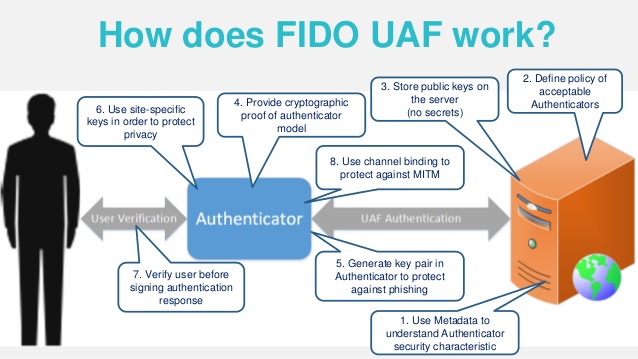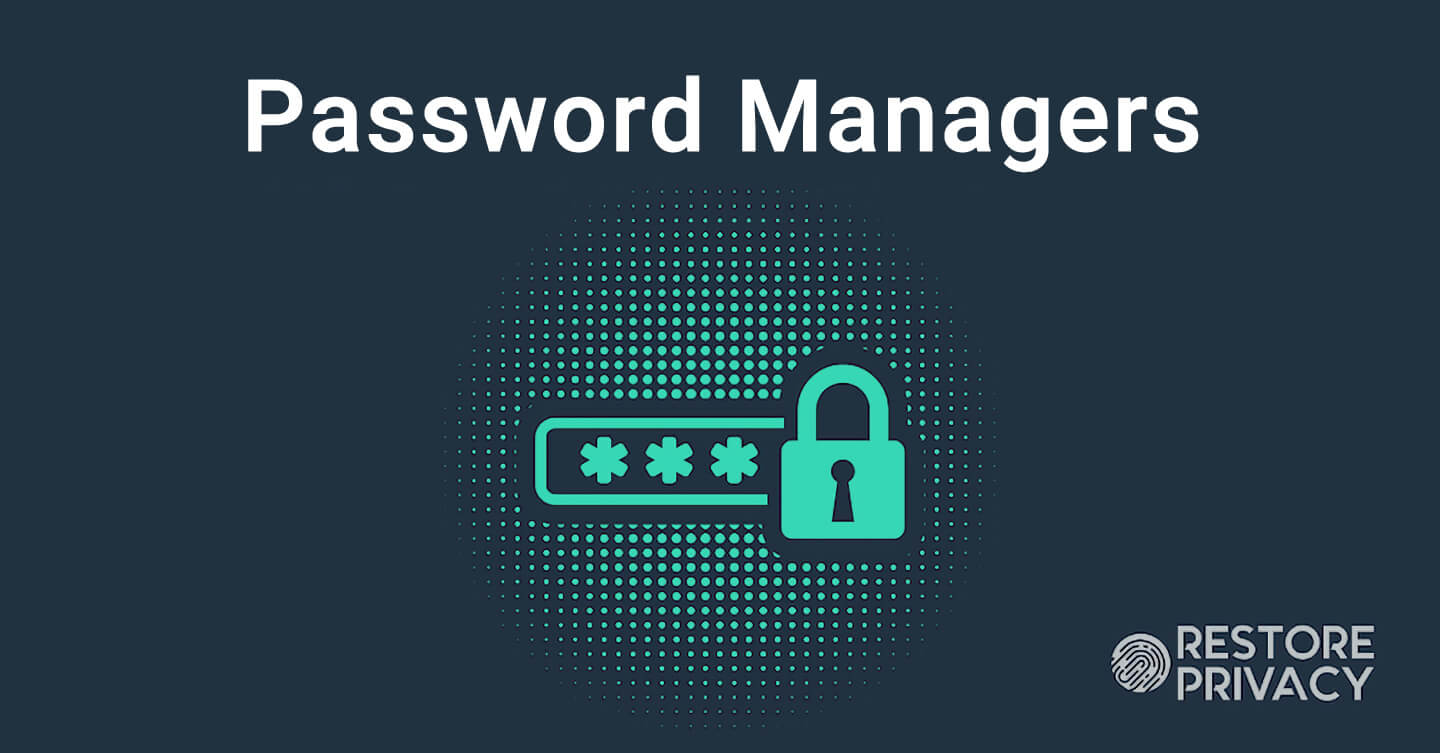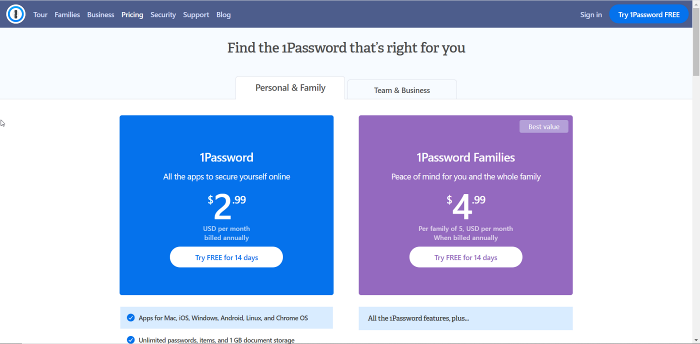
Passwords alone are not enough to keep your online life secure. Two-Factor Authentication adds an extra layer of security. Here we look at integrating your 2FA authenticators with 1Password. 'We’ve really enjoyed working with Yubico on bringing this integration to 1Password on iOS,' says Jeffrey Goldberg, a product security officer at AgileBits, which makes 1Password. Image: 1Password This service works with Windows, macOS, Linux, Chrome OS, Android, iPhone, and iPad. This service will let you access your accounts and services with one master password.
It's fast, reliable & secureFIDO is what’s called a “standard.” Like WiFi, or Bluetooth. It works on any web browser and on all of your devices, including our smartphone, desktop or laptop computer, tablet, or smartwatch. FIDO makes logging in to your online accounts much easier, while keeping your info safe from hackers and trackers.
Step 1: Log inPress the website’s login button. You may or may not need to enter your username.
Step 3: SuccessThis simple action logs you in. FIDO validates it's really you and doesn't transmit any of your login information over the internet. Easy, safe and private!
FIDO is a new technology that lets you sign in to any website that supports it -- securely and without relying on a password. FIDO is what’s called a 'standard.' Like WiFi, or Bluetooth. It works on any web browser and on devices we use every day, including your smartphone, desktop or laptop computer, pad, or smartwatch.
When a website or app is powered with FIDO, you use your everyday device to log in with a simple action. You can use biometrics on your PC or smartphone, like a face scan or a fingerprint reader. Or you can use a security key or PIN number. Then you’re good to go! When you browse your way to any website that supports FIDO technology, you simply log in with that easy action. You’re logged in .. without a password!
FIDO is a very secure way to log in, because none of your login information is being transmitted over the internet.
The secret is something called public key cryptography, technology keeps login information securely on your device. Nowhere else. The website knows for sure that it is YOU logging in, not a cybercriminal, and only to the correct website. Think of it as a virtual lock and key. Best file unzipper for mac. How to download snapchat on a macbook air. A FIDO-secured website has a special lock; your device has the special key that unlocks it.
FIDO is a form of two-factor or multi-factor authentication, but way easier. You don’t have to enter a little code from one device to another.
Support for FIDO is widespread and growing fast. If you’re wondering if your device or service uses FIDO, look for the FIDO marks or the phrase 'powered by FIDO'. When in doubt, ask your service providers and tell them you’d like them to support FIDO logins.
FIDO standards come from an organization called the FIDO Alliance, a non-profit industry association. The FIDO Alliance’s sole mission is to reduce the world’s reliance on passwords with simpler, stronger authentication. FIDO Alliance’s 250+ members include many of the technology, financial services and e-commerce brands you know and trust. Visit fidoalliance.org for more information.

If you want to try logging in with FIDO today, some web services you can try include: Gmail, Windows account, Mint, eBay and Login.gov.
It's fast, reliable & secureFIDO is what’s called a “standard.” Like WiFi, or Bluetooth. It works on any web browser and on all of your devices, including our smartphone, desktop or laptop computer, tablet, or smartwatch. FIDO makes logging in to your online accounts much easier, while keeping your info safe from hackers and trackers.
Step 1: Log inPress the website’s login button. You may or may not need to enter your username.
Step 3: Success1password Fido Standard
This simple action logs you in. FIDO validates it's really you and doesn't transmit any of your login information over the internet. Easy, safe and private!
FIDO is a new technology that lets you sign in to any website that supports it -- securely and without relying on a password. FIDO is what’s called a 'standard.' Like WiFi, or Bluetooth. It works on any web browser and on devices we use every day, including your smartphone, desktop or laptop computer, pad, or smartwatch.
When a website or app is powered with FIDO, you use your everyday device to log in with a simple action. You can use biometrics on your PC or smartphone, like a face scan or a fingerprint reader. Or you can use a security key or PIN number. Then you’re good to go! When you browse your way to any website that supports FIDO technology, you simply log in with that easy action. You’re logged in .. without a password!
FIDO is a very secure way to log in, because none of your login information is being transmitted over the internet.
The secret is something called public key cryptography, technology keeps login information securely on your device. Nowhere else. The website knows for sure that it is YOU logging in, not a cybercriminal, and only to the correct website. Think of it as a virtual lock and key. A FIDO-secured website has a special lock; your device has the special key that unlocks it.
FIDO is a form of two-factor or multi-factor authentication, but way easier. You don’t have to enter a little code from one device to another.


Support for FIDO is widespread and growing fast. If you’re wondering if your device or service uses FIDO, look for the FIDO marks or the phrase 'powered by FIDO'. When in doubt, ask your service providers and tell them you’d like them to support FIDO logins.
1password Fido2 Nfc

1password Fido
FIDO standards come from an organization called the FIDO Alliance, a non-profit industry association. The FIDO Alliance’s sole mission is to reduce the world’s reliance on passwords with simpler, stronger authentication. FIDO Alliance’s 250+ members include many of the technology, financial services and e-commerce brands you know and trust. Visit fidoalliance.org for more information.

If you want to try logging in with FIDO today, some web services you can try include: Gmail, Windows account, Mint, eBay and Login.gov.






